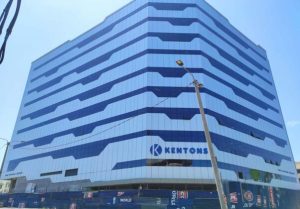News
Staff Expose Alleged Human Rights Abuses and Tax Evasion At Kentons Pharmaceuticals in Kisumu, Demand KRA Probe

Employees at Kentons Pharmaceuticals in Kisumu have raised serious allegations of workplace abuse and tax evasion, demanding that Kenya Revenue Authority Director General Humphrey Wattanga dispatch an independent investigation team to probe the pharmaceutical company operations.
The pharmaceutical wholesale and distribution company, owned by the extended Ashok Shah family and headed by founding director and CEO Ashok Shah, alongside directors Vishaal Ashok Shah and Neel Ashok Shah, stands accused of fostering a toxic workplace environment characterized by intimidation, unfair dismissals, and systematic labour rights violations.
According to multiple staff sources who spoke to this publication, the company has created a culture of fear where employees are routinely forced to sign contracts without proper explanation and subjected to unlawful dismissals.
Workers claim they are coerced into silence through threats of termination, with management allegedly telling concerned employees to resign under the pretext that employment is a favor.
The allegations extend beyond workplace harassment to include racial discrimination, with sources claiming that Asian staff receive preferential treatment including exclusive access to bonuses, while local employees are systematically sidelined and overworked.
Staff report being expected to work from 7:30 am until 6:30 pm despite official operating hours being 8:00 am to 6:00 pm, with no overtime compensation offered.
In a controversial development, permanent staff have allegedly been coerced into signing new contractual terms without adequate review time, effectively converting their employment from permanent to contractual status without prior consultation.
The company has also reportedly reallocated employees’ statutory NSSF contributions to private APA Insurance coverage without worker consultation, raising questions about compliance with existing labour regulations.
The financial irregularities allegedly extend to tax evasion schemes involving the finance department, where sources claim friendly suppliers receive multimillion-shilling drug supplies without proper electronic invoicing.
Staff allege that company management maintains improper relationships with KRA Kisumu branch officials to cover up these practices.
The toxic environment has reportedly taken a significant toll on workers, with at least five employees resigning in the past two months citing intense frustration with discriminatory management practices and psychological strain.
Former employees claim that efforts to seek redress through labour offices often prove futile due to suspected corruption, with bribes allegedly used to dismiss cases.
Staff sources are now calling for comprehensive investigations into the company’ operations, particularly focusing on tax compliance, labour law adherence, and financial transparency.
The allegations paint a disturbing picture of corporate misconduct that, if substantiated, would represent serious violations of Kenya’s labour laws and tax regulations.
The Kenya Revenue Authority has not yet responded to requests for comment on the allegations.
These developments underscore broader concerns about corporate governance and worker rights protection in Kenya’s business sector, particularly regarding the treatment of local employees by international business entities operating within the country.
Kenya Insights allows guest blogging, if you want to be published on Kenya’s most authoritative and accurate blog, have an expose, news TIPS, story angles, human interest stories, drop us an email on [email protected] or via Telegram
-

 Grapevine2 weeks ago
Grapevine2 weeks agoAlleged Male Lover Claims His Life Is in Danger, Leaks Screenshots and Private Videos Linking SportPesa CEO Ronald Karauri
-

 Grapevine1 week ago
Grapevine1 week agoRussian Man’s Secret Sex Recordings Ignite Fury as Questions Mount Over Consent and Easy Pick-Ups in Nairobi
-

 Investigations5 days ago
Investigations5 days agoMulti-Million Dollar Fraud: Three Kenyans Face US Extradition in Massive Cybercrime Conspiracy
-

 Economy4 days ago
Economy4 days agoIran Demands Arrest, Prosecution Of Kenya’s Cup of Joe Director Director Over Sh2.6 Billion Tea Fraud
-

 News3 days ago
News3 days agoTHE FIRM IN THE DOCK: How Kaplan and Stratton Became the Most Scrutinised Law Firm in Kenya
-

 Business5 days ago
Business5 days agoA Farm in Kenya’s Rift Valley Ignites a National Reckoning With Israeli Investment
-

 Business2 weeks ago
Business2 weeks agoM-Gas Pursues Carbon Credit Billions as Koko Networks Wreckage Exposes Market’s Dark Underbelly
-

 Africa1 week ago
Africa1 week agoFBI Investigates Congresswoman Ilhan Omar’s Husband’s Sh3.8 Billion Businesses in Kenya, Somalia and Dubai






















